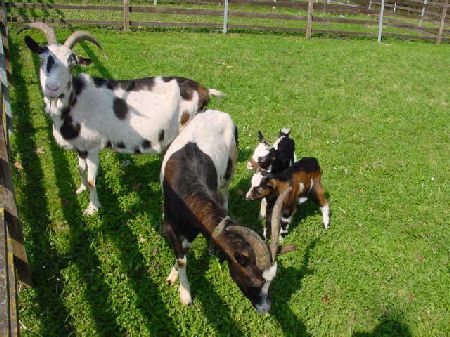Livestock biodiversity – what is it?
“Biodiversity” i.e. “diversity of life” is the basic requirement for the ability of living beings to adapt to changing environmental conditions.
The genetic diversity of our farm animals has been severely affected by the intensification and specialization of agricultural production over the last few decades. The strict selection for only a few performance characteristics and the extensive decoupling of animal husbandry from natural environmental conditions (pure stable keeping, increased use of concentrated feed, etc.) made it possible to breed modern high-performance breeds. Characteristics such as grazing ability, tolerance to bad weather, utilization of suboptimal feed or the ability to self-regulate in emergency situations were no longer important for production and were no longer taken into account in breeding. In addition, the Austrian breed landscape changed significantly in the 20th century due to the import of special breeds. These and other factors are now threatening the existence of many traditional breeds.
- Department of Animal Genetic Resources and Organic Agendas
- Head of department Dipl.Tzt. Beate Berger
- Focus of the department
- Austrian gene bank for farm animals
- Coordination of conservation measures for rare farm animal breeds
- Genetic monitoring of populations of rare livestock breeds
- Characterization of breed characteristics
- Representation of animal genetic resource concerns at the Food and Agriculture Organization (FAO)
The Department for EU Agendas
Organic farming is regulated in Europe by Regulation (EC) No. 834/2007 and its implementing regulations. This means that the same rules and requirements apply to crop cultivation, animal husbandry and the processing of food and feed in all European member states.
Organic farming is a successful, constantly growing and very dynamic sector that is based on uniform rules from the southern tip of Portugal through the alpine-montane zones of Austria to the North Cape. It is easy to imagine that numerous interests of the most diverse actors in the individual member states need to be reconciled. The Department for EU Agendas, in collaboration with the Federal Ministry of Health, represents the interests of Austrian organic agriculture in the standing committee for organic agriculture in the European Commission in Brussels.
However, the Department for EU Agendas not only fulfills its tasks at the European level, but is also active in numerous working groups and committees in the creation of national interpretations and implementation rules for organic farming.
In the context of organic farming, we see ourselves as a link and bridgehead between politics, science and practice.






